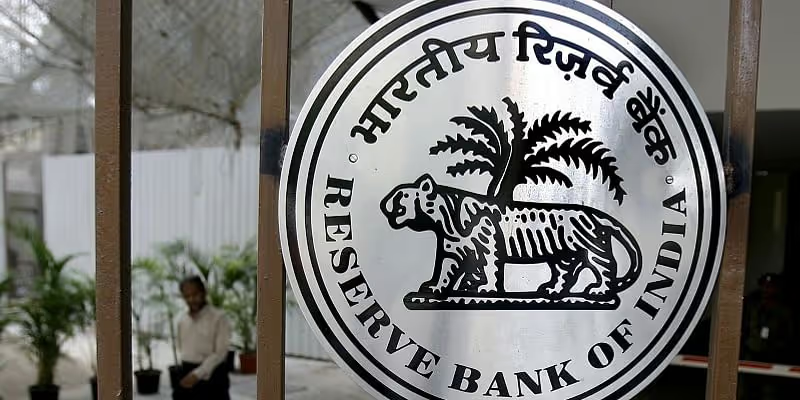RBI's fintech repository triggers cheers and fears in equal measure
While some startups believe the fintech data repository heralds a new era of transparency and insight, others caution that the breadth of information required may stifle innovation and competitiveness within the sector.
Fintech startups in India don’t know what to make of the data repository announced by the Reserve Bank of India (RBI).
The RBI, in a statement announcing the formal launch of the fintech repository on Tuesday, said that the portal would serve as a compendium for policymakers to improve their understanding of the sector, as well as help formulate sophisticated policy frameworks.
The repository will gather "essential information about fintech entities, encompassing their activities, technological applications, and more" from both regulated and unregulated companies operating in the financial services sector.
Though initially appearing innocuous, this initiative has left the industry divided.
A majority of the firms have lauded the initiative, contending that the repository will enable the financial regulator to gain augmented and systematised insight into the ecosystem, including basic but essential information such as the precise count of startups, along with the myriad sub-sectors that have burgeoned within the domain.
“We’ve seen in the past how the absence of visibility into companies operating beyond conventional fintech models has posed challenges for the RBI in formulating policies that would’ve ultimately been conducive to their growth. The repository will solve that to a large extent,” says Anurag Jain, Founder and Executive Director of .
Illustrating with an example, Jain says a big motivation behind the RBI’s formulation of the digital lending guidelines was that it noticed startups coming up with all sorts of unconventional lending methods that weren’t on its radar.
“Even just in the last six months, the RBI has cracked down on companies outside the purview of the current regulatory framework. They were, in no way, illegal—they were just operating in a space the RBI hadn’t regulated yet,” he adds.
The problem arises when, after a startup has operated in a space for 2-3 years and raised significant investor capital, the regulator decides to formulate policies that subsequently and potentially impede the company's operations.

“It’s well known that tech innovation will always outpace regulatory action, but with the repository, the RBI can catch it early and pre-empt innovations before they get tangled up in investor capital,” Jain explains.
Fintech entrepreneurs also see being listed on the portal as a sort of whitelisting—an indication that “they are companies willing to share information with the regulator because they have nothing to hide”.
“This could weed out some hesitant players who might have otherwise preferred flying under the RBI’s radar,” the founder of a credit card bill payment company says.
Some founders highlight that the fintech data repository has the potential to enhance transparency and corporate governance, largely because it would encourage companies to furnish regular updates to the RBI for internal tracking.
“The repository portal will hopefully make it easier for the regulator to track compliance…transparency is always a good thing,” says Ankit Parasher, Co-founder of Salt.
“It will also lend some degree of legitimacy and credibility to fintechs that don’t fall under RBI’s definition of a regulated entity,” he adds.
But fears remain
Despite the many positives of the fintech data repository, companies in the sector aren't fully convinced.
For one, there's a lot of ambiguity around the specific data companies would need to disclose, and companies haven't received any communication on that from the RBI. Many say they would be reluctant to share details that could potentially be exploited by competitors.
Another is the startup industry’s much-talked-about fear of heightened oversight.
Fintechs have often voiced apprehension during previous policy shifts, saying that regulations can sometimes stifle innovation. With companies required to make additional disclosures to the RBI, more issues may surface that need addressing, much to the chagrin of companies that would prefer to be left alone.
Finally, there’s vexation around the costs associated with doing internal audits and reporting to the RBI, and then not even being granted the status of a regulated entity (RE).
“It seems like the RBI may want us to report like a regulated entity, without granting us the status of a regulated entity. Either the RBI should be open to giving out RE licenses more readily, or create reporting structures for the portal that are very lenient,” says one fintech startup founder who wishes to remain anonymous.
Rather than conducting compliance audits internally, fintechs often outsource them to external audit firms, regulatory bodies, or specialised compliance consultants who bring expertise and objectivity to the evaluation process—but also come at a cost.
The founder says that a single compliance report for an unregulated entity can cost up to Rs 8.5 lakh ($10,000)—a pretty penny for smaller startups. The RBI may also impose heavy penalties in case of irregularities in these filings, which can again dent a growing company’s finances.
“We don’t mind filing compliance reports but why not grant an RE status? It’ll also reduce the barrier to being enlisted on the portal for fintechs and more will step up to comply,” the founder adds.
The picture will become much clearer once the RBI forwards the list of details it requires from fintech startups.
(The story has been updated to change 'SaltPe' to 'Salt' as requested by the company.)
Edited by Kanishk Singh








